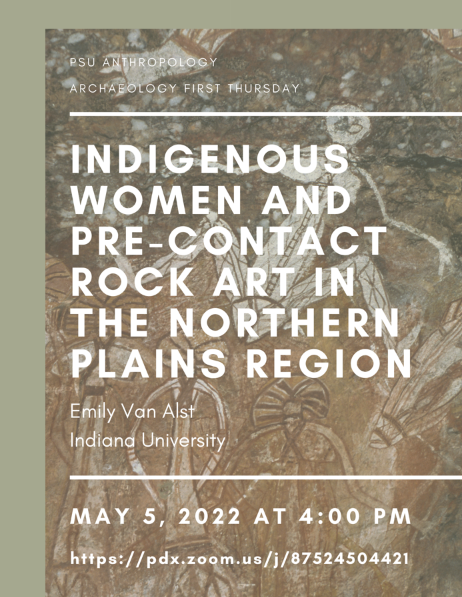Indigenous Women and Pre-Contact Rock Art in the Northern Plains Region
Please join us Thursday, May 5, 2022, at 4 p.m. for our monthly PSU Archaeology First Thursday Speaker series for a talk by Emily Van Alst (Indiana University).
We will meet virtually via zoom. Please follow this link to register for the talk: https://pdx.zoom.us/j/87524504421
Note that most First Thursday talks are recorded and will be available after the event. More information is available here: https://pdxscholar.library.pdx.edu/archaeology-first-thursdays/
Petroglyphs in the Northwest Plains region of the United States transmit Indigenous knowledge across generations and require interpretations rooted in Indigenous ontologies to fully contextualize and understand these images. An often-overlooked aspect of this type of research is the role that Indigenous women played in the creation of these images. This talk, which is grounded in methods of Indigenous archaeology and rock art research, will explore how we can improve our interpretations of rock art images by foregrounding Indigenous knowledge, and in particular, Indigenous women’s voices and experiences.
Emily is of Sihasapa Lakota descent. She graduated from Yale University in 2016 with a double major in archaeology and anthropology. Her research focuses on indigenous women’s participation in the creation and use of rock art in pre-contact society on the Northern Plains. She uses the lenses of indigenous archaeology, feminist archaeology, and indigenous feminism to frame her work within a broader social context.









